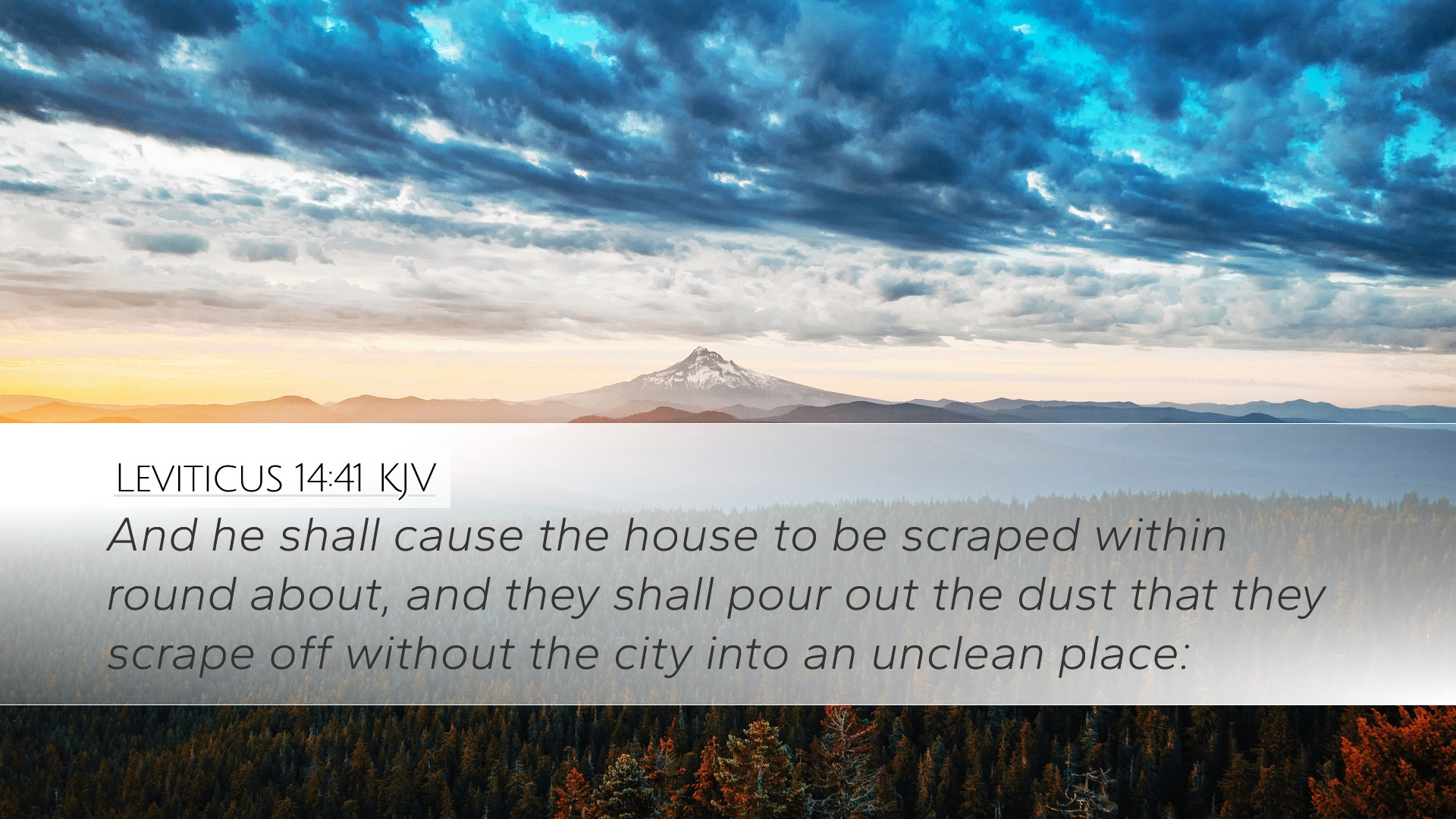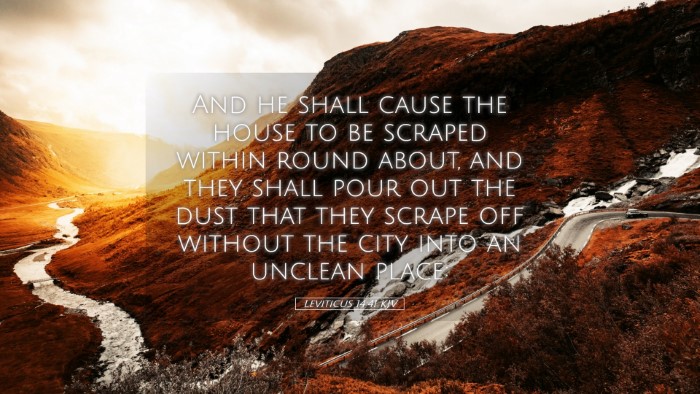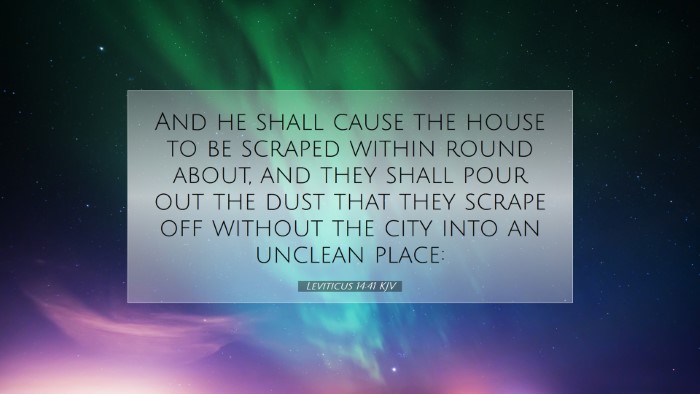Leviticus 14:41 Commentary
Verse: "And he shall cause the house to be scraped within round about, and they shall pour out the dust that they scrape off without the city into an unclean place:" (Leviticus 14:41)
Introduction to Leviticus 14
The book of Leviticus serves as a guide for the Israelites, offering laws and regulations regarding ritual purity, sacrifice, and the holiness required to dwell in the presence of God. Chapter 14 specifically deals with the procedures for cleansing leprous houses, representing a unique aspect of purification that blends both physical and spiritual cleanliness.
Contextual Analysis
In the context of this chapter, the instructions revolve around how to deal with a house that has been infected by "leprosy," a term that may encompass various forms of mildew or decay. This passage illuminates the significance of purity within communal spaces and the symbolic representation of sin and its consequences.
Insights from Public Domain Commentaries
Matthew Henry
Matthew Henry highlights the serious nature of leprosy, which symbolizes not just physical ailment but also spiritual decay. He notes that the scraping of the house “within round about” indicates a thorough purification. The act of removing the contaminated material outside the city reflects the expulsion of sin from the community, paralleling the actions of the scapegoat on the Day of Atonement.
Albert Barnes
Albert Barnes provides an important observation regarding the dust removed from the house. He describes the importance of transferring this dust to an “unclean place,” emphasizing the biblical principle of separation. This action serves to maintain the sanctity of both the dwelling and the community, as the Israelites were called to exemplify holiness. Barnes connects this to the overarching theme of maintaining God's presence through cleanliness and purity.
Adam Clarke
Adam Clarke offers a detailed linguistic and historical analysis of the term "unclean." He explains its implications within the life of the Israelites. Clarke stresses that the procedures prescribed symbolize the seriousness with which God views sin, intercessory practices of the priests, and the communal aspects of holiness. The "unclean place" becomes a significant element in understanding religious and societal norms of ancient Israel.
Theological Implications
The act of scraping and removing impurity speaks to the need for introspection within the church today. Much like the houses of ancient Israel, believers must reflect on their spiritual condition and recognize areas that require cleansing. This purification process is not merely physical; it encompasses moral and ethical dimensions crucial for living a life reflective of God’s holiness.
Practical Applications
- Self-Examination: Pastors and congregants should regularly engage in self-assessment to identify 'unclean' aspects of their spiritual and moral lives.
- Cleansing Community Spaces: It calls leaders to implement practices within their congregations that promote holiness and separation from sin.
- Teaching on Holiness: Educators and theologians can draw parallels between these ancient practices and contemporary calls to holiness, emphasizing the importance of maintaining a sanctified community.
Conclusion
Leviticus 14:41 not only provides practical steps for purifying a dwelling but also serves as a profound theological statement about the seriousness of sin and the call to purity among God’s people. The insights gleaned from Matthew Henry, Albert Barnes, and Adam Clarke collectively challenge us to consider our responsibility in fostering a holy community that reflects the character of God through our collective and individual purity.


